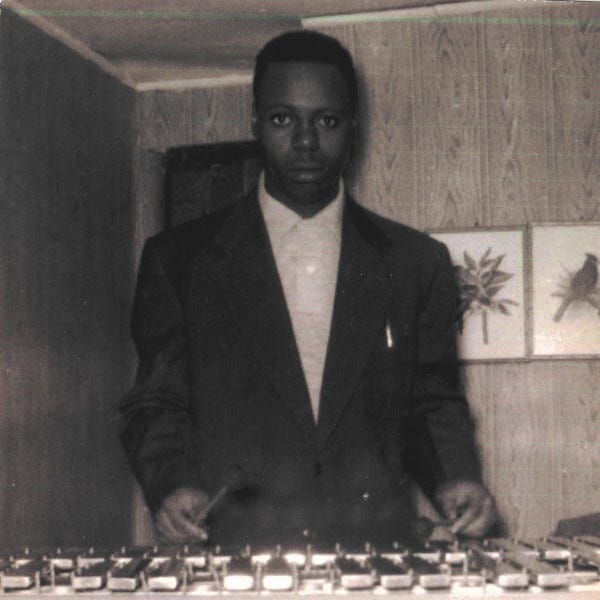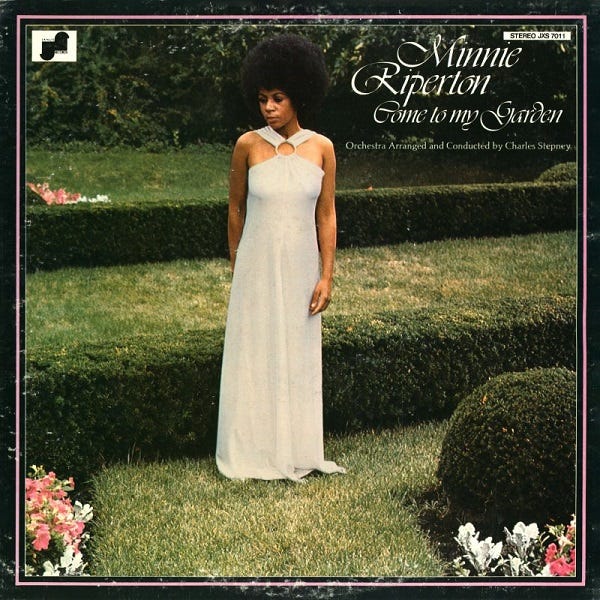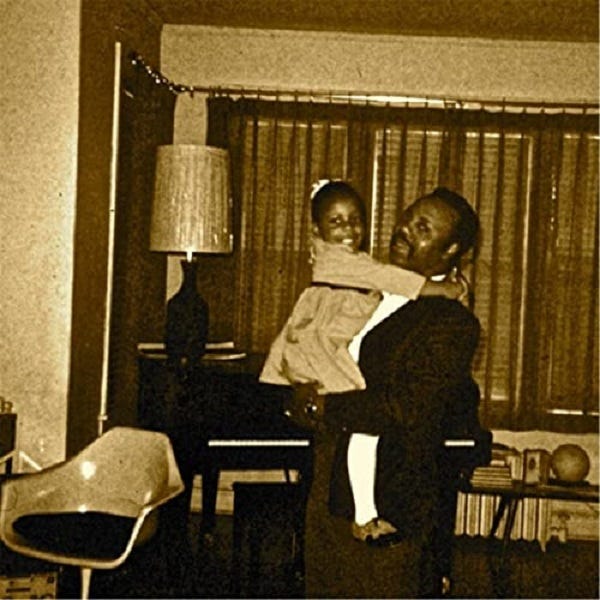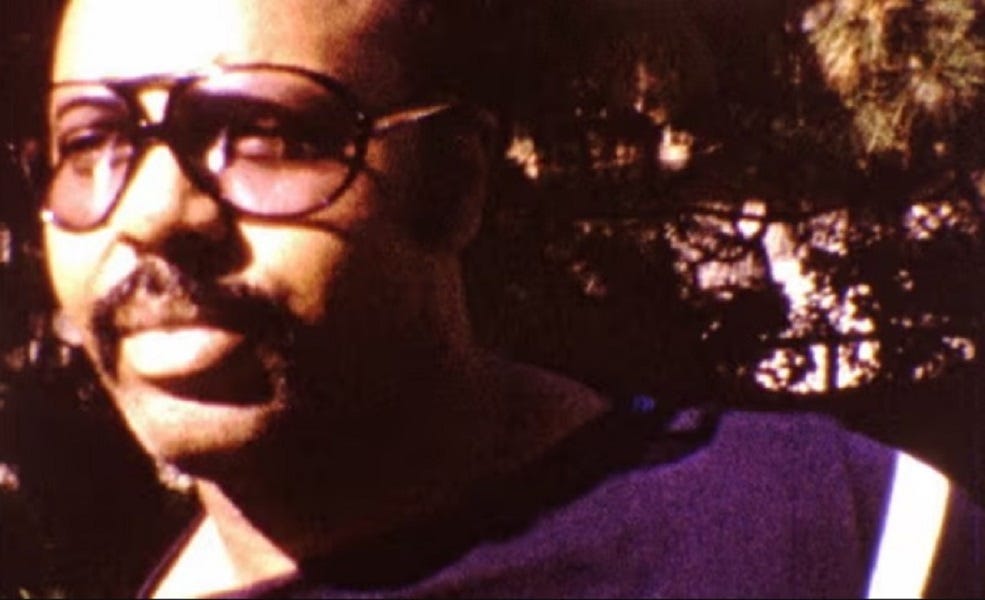Charles Stepney (March 26, 1931 – May 17, 1976) – Vine Of Happiness (1971)
The great producer co-wrote this phenomenal closing cut for the New Rotary Connection's final LP, featuring Minnie Riperton on vocals.
View most updated version of this post on Substack
Search our full archives
Charles Stepney was a genius songwriter, arranger, and producer who helped create masterpiece albums in the late 1960s and 70s for artists including Rotary Connection, the Dells, Ramsey Lewis, and Earth, Wind & Fire.
Born and raised in Chicago, Stepney got his start as a vibraphonist and piano player in the 1950s. He was hired by Chess Records, first as a session musician and later as an arranger.
See our earlier posts on the Dells’ songs “There Is” (1967), “It's All Up to You” (1971) and “Freedom Means” (1971) for more on his collaboration with that legendary vocal group during the late sixties and early seventies.
Along with Marshall Chess, the son of Chess founder Leonard Chess, Stepney put together the soul-rock group Rotary Connection in 1966, featuring Minnie Riperton on vocals. He went on to co-produce and arrange six albums for them between 1968-71.
He produced Riperton’s debut solo album Come to My Garden in 1970 on Janus Records, and wrote or co-wrote all but one of its tracks. Together with her husband Richard Rudolph he co-wrote the sensational opening cut “Les Fleurs” which became one of her best-known songs and was memorably sampled by the Black Sheep on their classic hip hop LP A Wolf In Sheep’s Clothing (1991).
After the group went through lineup changes, they released their final album Hey, Love in 1971, solely produced and arranged by Stepney. He and Rudolph co-wrote the album’s classic jam “I Am the Black Gold of the Sun,” which was covered by Jocelyn Brown in 1997 for the Nuyorican Soul album produced by Louie Vega and Kenny “Dope” Gonzalez (aka Masters At Work).
They also co-wrote the album’s phenomenal closing cut “Vine Of Happiness.” Like the rest of the LP, it featured Stepney on keyboards, Pat Ferreri and Phil Upchurch on guitar, bassist Sydney Simms, Donny Simmons on percussion, “Master” Henry Gibson on congas (who played in Curtis Mayfield’s band for many years), and Riperton on vocals alongside Kitty Haywood, Dave Scott, and Shirley Wahls.
While producing the Ramsey Lewis Trio from 1968-70, Stepney had met drummer Maurice White, who went on to found Earth, Wind & Fire. Stepney first collaborated with them as an associate producer on their 1974 LP Open Our Eyes, for which he co-wrote three tracks. The song he co-wrote with White and Philip Bailey was the funk jam “Tee Nine Chee Bit,” which remains one of the group’s funkiest deep cuts.
Stepney went on to co-produce EWF’s next three albums, starting with their breakthrough LP That’s The Way Of The World (1975) which went to #1 on both the Billboard 200 and R&B album charts on its way to being certified triple-platinum.
The same year, Stepney produced Ramsey Lewis’ Don't It Feel Good LP, played synthesizers on it, and wrote or co-wrote six of its eight tracks. They included the album’s superb title track which he solely wrote, and the phenomenal slow jam “I Dig You,” co-written with Cash McCall.
Its single was the very funky “What's the Name of This Funk (Spider Man)” that went to #6 on disco charts, which Stepney co-wrote with singer Morris Stewart and multi-instrumentalist Derf Reklaw-Raheem. The album itself was a big seller and reached #5 R&B.
Stepney and White co-produced the Emotions’ third studio album Flowers (1976), featuring the stellar title track White co-wrote with EWF guitarist Al McKay.
In the middle of the recording sessions for EWF’s 1976 album Spirit, they got a phone call informing them Stepney had died of a heart attack. The album’s beautiful title track was co-written for him by White and keyboardist Larry Dunn as a testament to how much the group appreciated all he had done for them.
Happy Heavenly Birthday to the great Charles Stepney.
Further info:
“Charles Stepney built lasting cathedrals inside Black music,” Chicago Reader, August 16, 2022.
“46 Years After His Death, the Producer Charles Stepney Shines Again,” The New York Times, September 14, 2022.
“Aural History: The Underappreciated Legacy of Charles Stepney,” AfterGlowWatx, April 22, 2023.
#soul #funk #TheDells #MinnieRiperton #RamseyLewis #EWF #CharlesStepney









I had a chance to see Rotary Connection twice. The first time was Homecoming Weekend at Davidson College in 1967. I had a blind date from Converse College in Spartanburg, SC, for the weekend; our date was set up for me by my friend Dee, an old friend from home who was also a freshman at Converse.
A disaster. My date arrived by bus, and I realized that I’d forgotten her name. Dee had told me over the phone, but still — it took her about two minutes for her to realize that I didn’t know her name. She told me, I apologized, and we moved on.
We had sandwiches at a nearby cafe. Ten minutes later she realized I’d forgotten her name again.
After the Varsity football game we were invited to a frat party at the Kappa Alpha house on campus. I was being “rushed” by them (yes, racists. I didn’t know, honest, though the huge Confederate flag hanging over the front door should have tipped me off).
No alcohol, of course, since Davidson was a dry campus. But there was a ton of delicious green bean casserole to be had, so the two of us filled our plates and sat down to eat. A fraternity brother wandered over with his own date and introduced her to me; I’d have politely returned the gesture, but I’d forgotten my date's name again. Exasperated, she identified herself and told them that I’d already forgotten her name several times that day. Which was true.
That night Rotary Connection was opening for Chuck Jackson on the Davidson stage. Chuck had been a favorite of mine in high school; I’d even once taken out an ad in our high school newspaper that read, “Chuck Jackson STILL Doesn’t Want To Cry!” And he was great, of course; but Rotary Connection's first song was so fantastic that the entire audience gave them a standing ovation. It put my date and I in such a good mood that the rest of the evening was perfection.
After the show she and I attended a party our freshman class put together somewhere, and we drank beer and made out for an hour. Then the band came onstage (ha, there was no stage) — The Showmen! Their song “39-24-46” was a high school favorite of mine (Dee's too). The singer told us that the song was actually entitled “39-24-40 Shape,” but it was labeled wrong. The Showmen didn’t have much of a set — they sang it and “It Will Stand,” their other hit, twice.
We didn’t care. We were drunk. We danced and made out some more, then I walked her to the school's guest quarters. The next day I escorted her to the bus stop for her ride home. She’d had a great time, she said, despite the fact that I kept forgetting her name.
The next time I saw Rotary Connection was right after Thanksgiving 1969 at the Palm Beach Rock Festival. At some sort of racetrack. Tickets were $20 for all three days, so my friend Rick and I swam across a swamp to get inside. Rotary Connection played the second day, following Grand Funk Railroad. During the break after GFR's set, Minnie Riperton walked out onstage by herself, clearly stoned, turned on the mic, and said, “I want to thank everyone here for electing me queen!” The audience cheered, and she laughed and walked offstage.
Of course they were great. Everyone was fantastic that day — The Byrds, Jefferson Airplane, Johnny Winter, Janis Joplin. It was fucking freezing at night, there were bonfires everywhere. Vanilla Fudge played a set around midnight, then Janis and Johnny Winter jammed with them. It was crazy.
The Stones were scheduled to close the festival Sunday night. They flew in by helicopter, but wouldn’t go onstage because of the cold. There were only about 200 audience members left, but we were all chanting, “We want the Stones” repeatedly. Wavy Gravy was the MC and told the crowd that Terry Reid wanted to perform, though he wasn’t scheduled. That pissed us off even more. Finally, the Stones came out onstage and sang “Gimme Shelter”; immediately after Jagger told the crowd that that was all they could give us — Keith Richard’s fingers were numb from the cold.
I ran into Wavy Gravy at a party one night in Austin in the late 1980s, and we talked about the festival. He was still pissed off at the Stones — he said they’d sat backstage for hours before finally going onstage at 4am.
Chuck Jackson was the sole performer for “Mid-Winters,” another social weekend, in 1968. Sorry yet again. One of my best friends in school, who was a year ahead of me, was an enthusiastic fan of Chuck's and was allowed to pick him up at Douglas Airport and drive him to the campus.